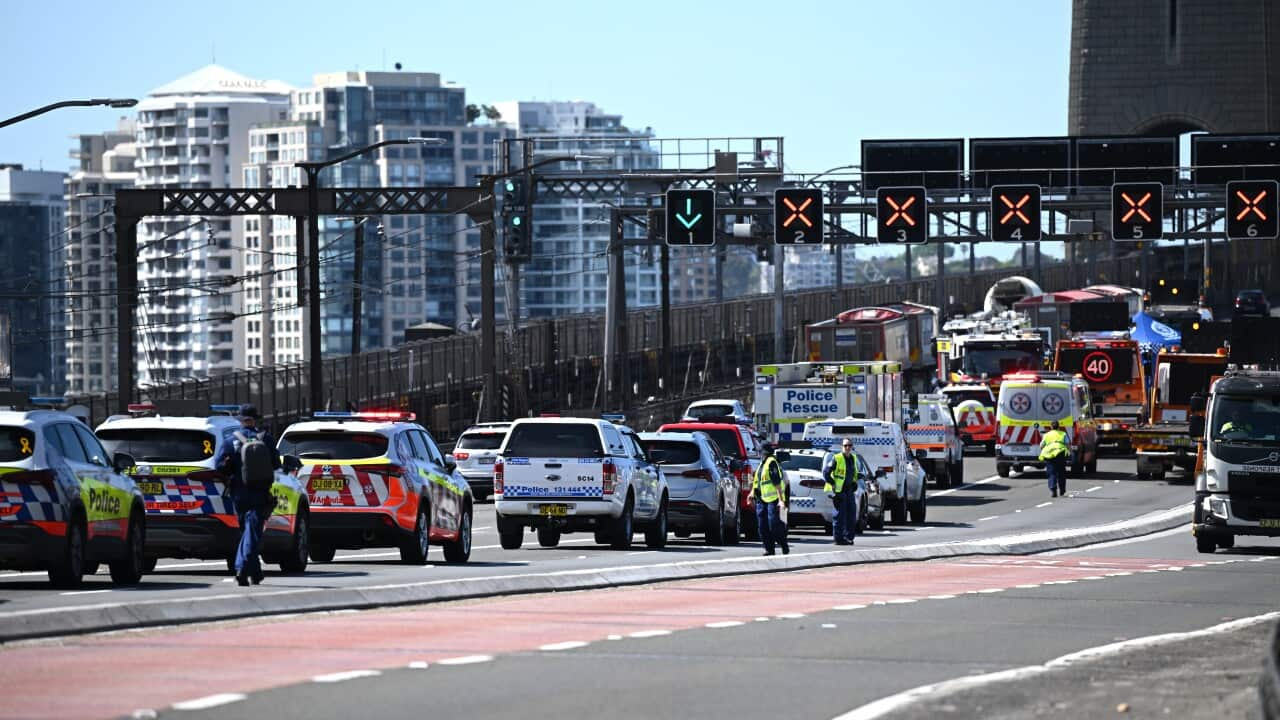Double demerits are now in effect in some parts of Australia, as more drivers take to the road over the Easter long weekend.
The road safety scheme penalises drivers committing certain traffic offences twice the usual amount of points (along with fines) during busy holiday periods.
If drivers receive too many demerit points, they can lose their licence.
Here's what to know.
NSW
Double demerit periods in NSW go from 17 April until 21 April for Easter and then 24 April to 27 April for Anzac Day.
The scheme applies to the following offences:
- Speeding
- Illegal use of mobile phones
- Not wearing a seatbelt or incorrectly wearing a seatbelt
- Driving with a passenger not wearing a seatbelt or approved restraint, or with a passenger incorrectly wearing a seatbelt or restraint
- Riding without a helmet
NSW deputy police commissioner Paul Pisanos has urged people to take extra care on the road.
"Last year in NSW there were 85 murders; however, four times as many people — 338 — died on our roads," he said. "That is a senseless loss of life."
Police said March 2025 was a "horror month" with the highest number of deaths in a month — 41 — on NSW roads since 2019.
ACT
Double demerits will apply to ACT drivers from Thursday 17 April to Monday 21 April for Easter.
They will also be in force for Anzac Day next week between Thursday 24 April to Sunday 27 April.
Anzac Day is 25 April each year.
Offences include speeding, mobile phone usage and not wearing a seatbelt or a motorcycle helmet.
Western Australia
In WA, double demerits will apply from 17 to 21 April for Easter and 24 to 27 April for Anzac Day.
Drivers can lose up to 14 points (and their licence) for some single violations, including driving a vehicle with a device fitted to evade a speed camera and driving a vehicle in a manner to evade being caught be a speed camera.
On Wednesday, the state government announced that more than 60,000 drivers have been caught by new safety cameras that came online in January.
Of those captured, over 30 per cent were not wearing seat belts correctly and 10 per cent had no seatbelt on at all.
Approximately 35 per cent had their phone in their hands and 20 per cent had phones in their laps — which is considered a fineable offence.

Thousands of Western Australian drivers have been captured on safety cameras using electronic devices, not wearing seatbelts and having unrestrained children in the front seat. Credit: Road Safety Commission.
Queensland
Unlike other states and territories, in Queensland double demerit points apply all year-round.
Drivers who repeatedly commit specific offences will receive double the points if a second or subsequent crime occurs within the next year.
- Driving more than 20km/h over the speed limit
- Mobile phone offences
- Seatbelt offences
- Driver failing to ensure passengers under 16 are appropriately restrained
- Motorcycle helmet offences
You don't have to commit the same crime to receive this fine, it only needs to fall within the same offence group.
Victoria, South Australia, Tasmania, and the Northern Territory
Double demerit points do not apply in these jurisdictions, but police will be running road safety campaigns.
Victoria
Double demerits do not apply in Victoria, but police will launch an 11-day Road Policing Enforcement Campaign from Thursday 17 April to Sunday 27 April.
Authorities will target high-risk driving which they say are the main causes of fatalities and serious injuries.
South Australia
South Australia will deploy Operation Safe Holiday from 17 to 21 April, with a focus on the 'fatal five' factors that lead to road trauma.
They are: speeding, drink and drug driving, distractions, not wearing a seatbelt and disregarding road rules.
SA Police sergeant John Hong launched the initiative this Easter. He has dedicated his career to policing following the death of his mother in a road crash.
"The circumstances of my mother’s collision are an example of how a second of inattention can have catastrophic consequences which persist over a lifetime for those who remain behind," he said.
Tasmania
Operation Safe Arrival was launched on 17 April and will run statewide throughout the holiday period.
Tasmania’s police said Easter means colder and wetter weather is on the horizon. This can cause reduced visibility and create slippery roads, which make driving more dangerous.
Northern Territory
While the NT does not apply double demerits, on Wednesday the state government, in partnership with the Motor Accident Compensation Commission, launched an Easter campaign.
It found Territorians are four times more likely to die on the road than the national average.


